Latest posts by Michael Gerber (see all)
- From Faith Current: “The Sacred Ordinary: St. Peter’s Church Hall” - May 1, 2023
- A brief (?) hiatus - April 22, 2023
- Something Happened - March 6, 2023
So okay, as many of you have noticed, I do an awful lot of armchair psychoanalyzing of John Lennon, sometimes not to his advantage. But as I was browsing YouTube tonight, I saw this press conference (I think LA, 1966) which reminded me why he’s my all-time favorite guy.
Watch to the end.

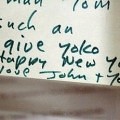
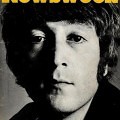



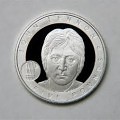

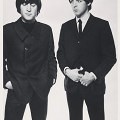
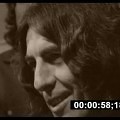
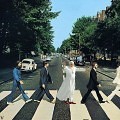

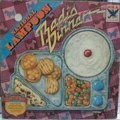
HAHAHAHAHA!!! I have NEVER seen that clip before and I thought Paul’s answer was hilarious enough (I think I actually have seen, or heard, that answer before), but John’s laconic “two queers” at the end had me guffawing! I love humor that comes unexpectedly full circle like that, out of nowhere! You forget that whole lesbian/prostitute thing is lurking, then it jumps out again. Wonderful.
Going off on a tangent here, as is my wont, because I’m both a lesbian AND a prostitute (and I’m working on becoming two queers), authorial intent – what did YOU mean, John – can lead to the worst interpretations you can ever encounter. “NW” is actually aperfect example of that. I have read a Beatles book (4get which) in which the author listed “Norwegian Wood” as another example of the pervasive misogyny of the album “Rubber Soul”. (It never occurred to me that the streak was there, but it is – “I’d rather see you dead, little girl” being but the most obvious lyrical example.)
The misogyny of “NW” was attributed to something Paul said, which was that “so I built a fire” was Lennon saying he burned the “bird’s” house down because she cock-blocked him.
This may or may not’ve been John’s *intent*, but, frankly, based on the song itself? You’d have to be psychotic to come up with that interpretation, in my opinion, and as far as I know, no one who never heard of Paul’s claim (I never saw a place where John claimed this, though I may have missed it) has ever read it that way. Generally, the way to indicate you’ve burned the fucking house down is to say something along the lines of “I burned the fucking house down”. If you say “so I built a fire”, sane foax wil assume the existence of a hearth, because no one says, “I built a fire – in the FIREPLACE of course, because I’m not psychotic”, because “I built a fire” in the context of the song implies the existence of a fireplace. Alsos, “I built a fire – in the FIREPLACE of course, because I’m not psychotic” is a terrible meter and hard to rhyme to.
Same here, Glaven–I’d heard Paul’s comment, but didn’t remember John’s. Which, I thought this morning as I woke up, is bluntly honest and correct–Eleanor Rigby didn’t get married because….And of course the Anglican priest…It’s Paul’s song, but it makes sense.
That’s when I love Lennon the most, when he’s showing the courage, so rare in celebrities, to say “this simply is.” That’s 60s art at its best (like Lenny Bruce, too)–the conceptual/cult-of-the-artist thing was, IMHO, less useful, and lead precisely to the artist-as-tycoon trap we see now. It is, to use the parlance of the time, “fascist,” whereas honesty is always liberating.
Your always interesting thoughts made me think two things:
1) Analyzing lyrics bores me; what I’m interested in is “John Lennon was having an affair with Maureen Cleave!” (or whomever it may have been). If it was Cleave, that puts the whole “Jesus” flap in a different light.
2) You can’t separate Lennon’s beliefs about women from the numbing availability of sex partners he endured from 1962 on. I think it was a real stress. Harrison talks about this, too. People were not built for that kind of environment, the utter satiation of every conceivable desire. And given that, it’s no wonder Lennon ended up with a woman who, by the end there, wasn’t sexually attracted to him. Most sources suggest that John and Yoko were leading separate sexual lives by the end there which, if true, makes perfect sense to me.
Anyhoo: honesty = funny and good.
If John and Yoko were leading separate sexual lives, then that’s both sad and an outright lie. They marketed themselves (via albums like Double Fantasy and in their many interviews) as this great love story. And Yoko markets that to this day. And plenty of people continue to buy it. When the truth, it seems, is that their partnership was more for business purposes. Nothing wrong with that — except if you’re trying to convince the world that you’re this great love story and an example of an ideal loving relationship. I don’t admire that they were living a lie. Or at least pretending to be something they were not.
I wonder how jealous John was of the fact that it was Paul who had truly found the love of his life — a woman he collaborated with emotionally, professionally and sexually for 30 years. I’m sure Paul and LInda had their ups and downs but you always got the sense that they enjoyed a great sexual relationship, right up to the end.
(An aside: Sometimes I think Paul’s domestic bliss was responsible for the marginal music he produced in the 80s and early 90s. Paul always seems to produce his best work when he’s unhappy or unsettled. That was true in the 60’s and early 70’s (he was happy with Linda but devastated by the loss of John and the Beatles) and that was true for the last 15 years after Linda’s death when he managed to produce great work again.
He seems happy with Nancy. Uh oh.
Anyway, I’m rambling but I love Paul’s quip in this video and I love John’s.
— Louise
This clip is a great example of Lennon’s skewed humor, and also his barely-repressed anger, in my opinion — look at his body language throughout. He’s moving his leg, swinging his chair, letting out physically all the mixed (at best) feelings he has about the whole press conference thing. (Hey, you brought up armchair psychologizing . . . .) It’s as if he’s been angry about the whole lesbian/prostitute comment, and has finally found a place to let some of that feeling out when he says the bit about “two queers.”
About “Norwegian Wood” (because I LOVE analyzing lyrics): Glaven, if the guy doesn’t burn the girl’s place down at the end, I don’t think the song makes much sense. Isn’t the point that the girl at the beginning is proud of her place’s panelling and says “Isn’t it good / Norwegian wood” and then at the end it’s the guy saying mockingly “So I lit a fire / Isn’t it good / Norwegian wood”? I hear that as the Norwegian wood of the panelling (and, by extension, the flat) burning. It makes perfect sense to me that this laconically told tale of revenge on a girl is on the same album as the obviously rage-driven “Run For Your Life.”
I’ll have to find that book that makes a case for “Rubber Soul”‘s misogyny, because I think that author’s onto something. “Drive My Car,” “You Won’t See Me,” “I’m Looking Through You,” “Girl” — plenty of anger/frustration with women from both Lennon & McCartney. I wonder if that’s part of why they were so musically in sync at this point; both were in romantic relationships that were rather emotionally fraught, though for different reasons.
And I wonder if the “numbing availability of sex” (nice phrase, Michael), especially while they were on tour, was beginning to lend some bitterness to their view of women?
Nancy: I’m not sure Paul’s body language suggests he was any happier to be at that press conference than John was. Just look at paul. He sits wrapped around himself — legs crossed, arms across his body, a bit hunched over, chewing his fingernail. His body language screams: Back off! And get me out of here! Meanwhile John can’t stop fidgeting and looks like he’s barely managing to restrain his hostility and impatience.
Paul did the interview schtick because it was part of the game, but he didn’t seem to like it any more than the others did. In fact, out of all of them, I think John seemed to be the only one who actually enjoyed being interviewed by journalists (at least smart ones). Paul has always been the least comfortable talking to a reporter or posing in front of a camera (unless that camera was held by Linda). Paul seems even less comfortable today. I can’t recall the last time I saw an interview with him where he seemed remotely relaxed.
As for Rubber Soul, I’m kind of surprised that I’ve never realized the misogynist strain running through the album. But I think you’re right. But maybe it isn’t misogyny so much as cynicism about women and what they were after.
And not just because of the endless stream of blank-faced groupies. But John was bored in his marriage and increasingly disdainful of his wife. Meanwhile, Paul is looking for a warm, maternal figure who will dote on him and instead finds a cool, ambitious career girl (Jane Asher) and is never quite sure whether she loves him or just loves the career boost of dating a Beatle.
I’m sure the attitude of all of the Beatles toward women at the time wasn’t all that great. They probably brought out the worst in each other on that front. But I’m not just blaming the fab four here. Let’s face it, A LOT of women behaved very badly around the Beatles. The Beatles had reason to get cynical about women, given the way they were seeing so many women act (wanting bragging rights about sleeping with a Beatle, hoping to have a Beatle baby, hoping to use the Beatles to boost their own careers). You can say the Beatles used women, but you can only be used if you allow yourself to be used.
— Drew
I have a number of things I feel I should say/add and, sadly, I feel yet another long, multi-part comment coming on, so foax should feel free to roll their eyes, mutter a curse and move on with their (unenriched-by-these-multi-part-comments) lives, smug in the knowledge that they are still in possession those 15-20 minutes they would have wasted had they read these comments. Smug b*stards!
First, in my previous comment, I said “You’d have to be psychotic to come up with that interpretation [viz., the narrator of “NW” burns the mutha down] … if you’d “never heard of Paul’s claim [that that was John’s intent].”
I only said that to intimidate any subsequent commenters, be they dullbloggard proprietors or mere comment denizens, out of adducing an argument in favor of that interpretation. But as afar as I can tell, that is exactly what Nancy is implying about herself! “That was MY interpretation, and I never heard of Paul’s comment!”
So, here is my moment of armchair psychology: Since, in the Heisenberg-approved DSM there is only ONE reliable indicator of sanity – which is not to be intimidated by anything I say – Dr. Glaven hereby pronounces Nancy Totally SANE. Necessary concomitant: This means that the rest of you who share her interpretation but were intimidated out of saying so by my comment are hereby declared INSANE, because being intimidated by me is the only indicator of insanity in the Heisenberg DSM. (It’s a very short manual.) Upside: Congratulations! All of you are still qualified to run for the nomination for Republican candidate for President and in fact have just gotten one large step closer to securing the nomination! Also, Obama is a secret Muslim terrorist, an irrelevancy I’m adding merely to make my comment sufficiently nonpartisan for this apolitical blog.
Cont’d below …
Anyroad, I still maintain that in the lyrics of “NW” itself, the evidence that the narrator commits a sociopathic act of arson is, at best, thin. And I don’t think his not doing so in any way ruins the song or weakens it – whereas I do believe his doing so, or reading the song in such a way as to assume he does, weakens an otherwise thoughtful, resonant and exquisitely understated song. I think the “he burned it all down” argument tends (& I have no way of knowing if this is the case with you, Nancy, so let me say outright that I am NOT saying it is) to come from people imposing what they “know” or think they know about John’s psychology onto the lyrics of the song. This evidence tends in the circular question-begging variety: “John was a seething cauldron of barely suppressed rage who couldn’t keep his anger out of his lyrics. How do we know this? Because at the end of ‘NW’, he has his narrator burn the flat down! And how do we know that’s what happens with the seeming innocent-sounding words ‘I built a fire’? Because John was a seething cauldron …” etc.
It has also been my experience that people who see the song this way (again: not implying I mean you, Nancy) cite Paul’s statement as evidence. Well, if the Intentional Fallacy has taught us nothing else (and it hasn’t), it has taught us not to confuse Author with Authority; or, to put it another way, the author’s interpretation of his work does NOT hold a privileged status: Even the author must point to evidence, which, in “NW”, is still merely the words “I built a fire”; and, again, even if it was John’s intent to say that … so what? The song itself is merely evidence that he failed in his intent in exactly the same way that Upton Sinclair failed at achieving his stated intent in The Jungle: He’s intended it to be an argument in favor of the necessity of a more human-centered socialist type of government. But when it came out, people largely talked about its revelations regarding the food packing industry, which makes sense, since TJ revealed that there was probably dirt, rats, shit and even clumsy-footed and oafish dudes in your meat and the government need to pass some pure food laws (which the government than did). THAT’s what foax talked about, causing Sinclair to state, famously, “I aimed at the public’s heart and by accident I hit it in the stomach.” Or, my intent was one thing; my actual achievement something quite else. (The Jungle is not a perfect analogy, though, because the book actually DOES make a good case for the necessity of socialism; it’s just that it’s hard to get a conversation re: Sinclair’s View That Only Socialism Can Save America started in your book club when it has to content with the shocker ZOMG!1! There’s DUDES in my food!1!!1)
Similarly, if you (again, not YOU, Nancy) are going to make an appeal to Author-As-Authority, why not appeal to the many times John himself said that the song was about an affair he had but didn’t want to be too explicit about because he didn’t wanna admit too much to Cynthia so it all came out, in John’s words, as “gobbledygook”? Note: In this version, sex happens in the song, an interpretation you may or may not agree with. If at some point, a fucking happens in this song, why is “I”‘s motivation for burning down the flat? Just to be a dick? Or to prove himself worthy of the Republican Nomination for the Presidency (in a country currently being run by a secret Muslim terrorist, just to be nonpartisan again)?
EVEN MORE below
I actually could go on a bit more, but will end here by saying to Nancy: We disagree in our interpretation of this song, but, in all sincerity, THANK YOU for enriching us all with your view. The foax who write for this blog do a great job with their posts of getting the rest of us to the most unexpected places and the journey is never anything less than a Magical Mystery Tour (which is the movie where John kills a fat lady by force-feeding her spaghetti).
I’m anal librarian enough to be utterly embarrassed by the many egregious solecisms in my three previous not-yet-approved comments, more by my use of the word “than” for “then” THAN (see? I do know the difference!) by anything else. But “content” for “contend” and “why” for “what” and all the rest (you’ll spot them on your own, I’m sure) are all pretty embarrassing.
And so I’m begging you, the moderators, “on bended knee”, as The Beatles might say: Can the errors be fixed in post, before you approve them (assuming you approve them)?
I’d be much obliged.
If the answer is “No”, well, then … You’ve made a powerful enemy this day, my friends …
Good point about Paul’s body language in this clip, Drew. He looks defensive, and that tracks with a lot of the interviews he’s given (and gives). He’s never seemed comfortable with the kind of improvisational commentary that John excelled at. Which reminds me that watching this clip shows how well the four of them (well, except for George, who doesn’t speak in this excerpt) played off each other, doing verbally what they did musically.
I can’t take credit for the “Rubber Soul” misogyny insight — that’s the author Glaven referenced — but yeah, it’s there. The history of the Beatles and women is pretty troubling, I must say — women often behaved badly with them, and vice versa. Their mind-blowing (for them and fans) did plenty of harm, to themselves and others.
Glaven, I’m sorry, I couldn’t figure out how to get into your text. The window just says “Publish/Trash/Mark as Spam”. But nobody here’ll hold a few tpyos against you.
I forget where I first read the “burning paneling” interpretation of NW, and I have to be honest, it’s never affected my feelings about the song one way or the other. It’s always been fairly clear that the song was about an affair, and Lennon being who he was, it could’ve ended in property destruction.
And when I say “being who he was,” I don’t just mean “the guy who nearly beat Bob Wooler to death with a shovel.” I mean “somebody who could really get away with almost anything.” In the Shotton book, Lennon says that he thought of robbing a bank, because nobody would do anything about it. “Oh, it’s just Beatle John.”
If Beatle John burned up Maureen Cleave’s new paneling out of spite, it wouldn’t surprise me a bit. And it also wouldn’t surprise me if he was just telling a story. This is a guy who never heard “no”–that’s an important facet of his life at that time.
It’s really tough to judge Beatle behavior, because they were thrust into a world very, very different than…well, mine at least. So I try to have some rachmanus while trying to figure it all out.
Glaven, our posts crossed in cyberspace. Actually, I heard the interpretation that the speaker of NW burns down the flat a long time ago (though I didn’t know it was Paul who originated it), so I can’t hear the song without that gloss. I don’t know how I would hear it if I weren’t previously aware of that reading of it.
If I understand your interpretation of NW correctly, sex happens in the song because sex happened in the affair John was conducting and trying not to reveal to Cynthia. Within the song itself, I can’t find any evidence for sex; isn’t that the point of the narrator’s crawling off to sleep in the bath? Expecting the song to mirror Lennon’s real-life experience is another way of reading too much of his life into the song, in my opinion.
Finally, at the end of NW the speaker doesn’t say “I built a fire,” but “I lit a fire.” (Yes, this is where majoring in English will get you.) The prosecution rests.
One last word, related to Michael’s Why-I-Love-Lennon original post: WHAT a songwriter and singer Lennon was! “Rubber Soul” includes “NW” but also “In My Life,” one of the most beautiful love songs ever, and “Nowhere Man,” one of the most beautiful philosophical songs ever. Amazing.
Nancy – you miss my point. I wasn’t trying to say that John’s “I was writing about an affair” statement took precedence over any other irrelevant authorial pronouncement; I was saying it is equally (in)valid, and the only real evidence is the song itself. You may or may not agree that sex happens in the song, but you shouldn’t think that John’s saying it does (or that sex outside his marriage was his inspiration for this song) is any more convincing on this issue than Paul’s he-done-burnt-it-down statement is on the other issue.
I also never said I thought sex happens in the song. I think it is ambiguous at best, and thought that before I ever read John’s own statements about what inspired it. The difference is that when I read John’s statement implying that in his interpretation sex happens in the song, I didn’t think to myself, “That’s ridiculous. [facepalm]“
Whereas Paul’s? Yeah, I kinda did the whole facepalm thing, in the same way I do a facepalm when I read interpretations of Huck Finn titled “Come Back to the Raft Ag’in, Huck Honey!” that try to pass that statement off as evidence that that there was some serious cross-racial, homosexual, pedophiliac love-that-dare-not-speak-its-name going on during that raft trip and that thats what the real story is there.
Because, again, I look at the evidence of the work itself and think, “Thin” and then go facepalm; and then think “This ‘interpretation’ seemingly tells me more about the interpreter than it does the work.”
I am embarrassed to acknowledge that you’re right – I said “built” and the lyrics say “lit”. I was wrong on that. What can i say? Brain cramp.
But “lit” as further evidence of an arson at the end? (I hesitated to use the word “further”, because it implies that there was some before, which, as you know, I kinda disagree with.) You rest on that?
Your case is thin, counselor.
@ Michael: Thanks for trying, anyway. It’s really more my job than yours to make me not look like an ignoramus, which is a good thing because if it were yours I’d be obliged to give you your notice right about now.
But again – thanks for trying!
I’m not sure I’m getting your point, Glaven, but here are some relevant quotes:
Lennon: “I was trying to write about an affair without letting my wife know I was having one. I was sort of writing from my experiences – girl’s flats, things like that. I was very careful and paranoid because I didn’t want my wife, Cyn, to know that there really was something going on outside of the household. I’d always had some kind of affairs going on, so I was trying to be sophisticated in writing about an affair, but in such a smoke-screen way that you couldn’t tell. But I can’t remember any specific woman it had to do with.”
And McCartney: “Peter Asher [brother of McCartney’s then-girlfriend Jane Asher] had his room done out in wood, a lot of people were decorating their places in wood. Norwegian wood. It was pine, really, cheap pine. But it’s not as good a title, “Cheap Pine”, baby. So it was a little parody really on those kind of girls who when you’d go to their flat there would be a lot of Norwegian wood. It was completely imaginary from my point of view but in John’s it was based on an affair he had. This wasn’t the decor of someone’s house, we made that up. So she makes him sleep in the bath and then finally in the last verse I had this idea to set the Norwegian wood on fire as revenge, so we did it very tongue in cheek. She led him on, then said, “You’d better sleep in the bath.” In our world the guy had to have some sort of revenge … so it meant I burned the place down …”
Pete Shotton says it was Maureen Cleave. Philip Norman says it was Sonny Drane.
Glaven, I think it’s great that Beatles songs stand up to — no, tower over — these kinds of debates. Reasonable people can disagree about what the songs mean, but in the end it’s the songs themselves that matter. So I’m fine with not having convinced you, just as I’m sure you’re fine with not having convinced me.
“Norwegian Wood” is the only song that was (at least partly) inspired by Dylan’s songwriting that I think matches or surpasses its inspiration. THAT I’ll rest on.
Ah! A last minute plea bargain that both (all?) sides can agree to – that “NW” is a GREAT song! Glaven/Glavin/Gavin Q. Heisenberg. Esq., will sign off on that because, as we say here in lawyer land, “res ipsa loquitur”! (Full disclosure: I do not live in lawyer land. Fuller disclosure: I have no idea what “res ipsa loquitur” means, so don’t tell the foax who live on the res that I stole their saying and was trying to pass myself off as a Native American lawyer.)
I’ll rest on this note: At the start of my day here at the library, I went into the stacks looking for the book in which the author made the point about the pervasive misogyny on RS. I thought, if it was in, I’d recognize its cover. it’s either not in or … I didn’t recognize its cover. (N.B.: This doesn’t rule out the possibility that both are true.)
if I ever do remember which book it was, I’ll come back here and say so.
Until then, I think I may take a little vacation from commenting here because, looking back over what I’ve posted here lately, even I am beginning to suspect that this so-called Gavin X. Hindenburg character may be a bit of a dullbloggian troll … or, as John might’ve said, this whole Nancy-Glayvun thing is about “two queers” …
A Day in the Life: The Music & Artistry of the Beatles by Mark Hertsgaard. I’m pretty sure that’s the book I was thinking of that remarks the misogyny in the various songs of Rubber Soul; but I won’t know for sure till it arrives for me from the branch that owns it (it’s not at my branch, which is why I didn’t recognize the cover on the shelf).
The relevant passage seemingly occurs on page 157, or thereabouts; this excerpt alone appears to be a enough of a smoking gun, since it seems to be listing the occurrences of anti-women statements and cites the alleged arson in “NW” as one of those instances.
Assuming anyone even cares about this anymore.
Okay – back to my hiatus …
I’ve heard from a very, very reliable source – literally the horses mouth – that “Norwegian Wood” was just a play on words as Lennon loved to do. It sounds an awful lot like “knowing she would” doesn’t it. As in isn’t it a nice knowing she would/will put out. Think about it. Much more clever and subtle, as The Beatles were, than burning down a house. How ridiculous. And Lennon at that time in his life wasn’t getting blown off much. As in never. Of course he got laid and that’s what he’s writing about and wanted to hide from Cynthia. Pretty simple and simply brilliant when you think about it. Case closed.
The guy with the long hair in the bottom left corner is David Crosby.
Unless there’s just a problem loading the video…., here’s another one gone AWOL. However, I have read through the comments and am glad they are here. Maybe someone with a box of Crayolas could render for us what isn’t where it used to be.
Just played fine for me, @Linda.
That’s another reason why I’m loathe to nuke old posts when the video goes dark–it may be a false negative.
Aha! That’s a real revelation! Ghosts in the machine, I guess.
Just to be the Lone Asshole here… I don’t think John’s “two queers” joke was all that terrific or funny. I think Paul’s crack in the beginning was awesome, and John was just riffing on Paul’s earlier joke. But maybe I’m just being a spoilsport. Or showing favoritism towards Paul or something. ?
I actually really like it, because it reveals two things:
1) So-called “queers” — people wantonly cruelly and illogically ostracized by that very-much-not-yet-reclaimed term — were not separate from the rest of us in 1966. They are the priest, the spinster…and every other job, too, but those two cultural profiles were common safe harbors. To neurotically, hysterically try to isolate them, as mainstream culture did in 1966, is absurd. They are us, just as much as anybody else. The initial question is ridiculous, and Lennon’s reply dismisses it as ridiculous. What’s this great piece of music about? Nothing — just “two queers.”
2) Because Beatles songs are fundamentally art, not pop commerce, queer people are surely everywhere in the Beatles canon. Not because they’ve been placed in there David Noebel-style as sexual subversion, but because the Beatles couldn’t have portrayed life without including prostitutes and lesbians, “queers” and everybody else. Rigby IS about “two queers,” just as much as “Tripper” and “Ticket to Ride” are about the sexual lives of those characters. Or not? Is “Lovely Rita” about frigidity? Does the narrator attempt a four-way, get denied, and then shown the door? This is a needlessly prurient, hopelessly sophomoric way to interpret Lennon/McCartney, and Lennon’s brutal reply is thus the perfect riposte (if less of a laugh-getter than Paul’s joke).
Just one man’s opinion.
While I love your interpretation, Michael… Respectfully, I think you MIGHT be giving John a little too much credit. I think he just wanted the bigger laugh, which he was used to getting 90% of the time. But again…. that just my opinion.
I think he just wanted the bigger laugh, which he was used to getting 90% of the time. But again…. that just my opinion.
Oh, you’re probably right @ChelseaQW. I just wanted to go easy on John for a change.
This is a great August 1986 hour long Paul McCartney interview by Barbara Hower from Entertainment This Week. She asked him a lot of great intelligent questions including how he felt about John Lennon’s horrible,tragic murder and she got a rare great interview out of him and he comes across as very likeable intelligent,funny,serious and charming.
This is really the best interview with Paul that I have ever seen or heard.She also talked to him about his drug arrests and all of drug related songs of The Beatles and his time in jail in Japan because of having tons of pot with him and she asked him after having so many groupies how has he managed to stat faithful to one woman,and he only half jokingly says it hasn’t been easy.And in between commercials Lionel Richie and David lee Roth talk about how great The Beatles,especially John and Paul were as song writers.
I still have this interview on an old VHS tape from the time. It’s not on youtube though for some reason. Unfortunately it gets interrupted by advertisements but then the interview resumes.But I just watched it again and there were no commercials now, I hope they don’t include them again.
Paul also says in this interview that soon after John died Yoko called him up and told Paul that John really loved him.
Notice how uncomfortable Paul’s face expression is for about a minute in this great August 1986 hour long Paul McCartney interview by Barbara Hower from Entertainment This Week when she says to him,probably your first great love before you married Linda was Jane Asher, it struck a chord.I’m sure that Paul was really in love with intelligent beautiful British actress Jane too,you don’t write the beautiful love songs such as And I Love Her,Things We Said Today, and Here There Everywhere,(plus the great songs he wrote about his arguments with her,which was his own fault because of his sexism constantly trying to get Jane to give up her acting career she loved so much and that she had been doing since she was 5 years old.She left him for good when in early 1968 after they had been lovers for 5 years and engaged to be married for 7 months,she found him in their bed in their house with another woman.
http://www.dailymotion.com/video/x3qtunj
In this April/May 1982 New Music Express interview with Paul McCartney he’s asked about how he feels about John’s murder and the it’s a drag comment that he didn’t mean and how horribly up set he really was and is and how he and John really loved each other.Paul also says that soon after John died he spoke with Yoko on the phone,( in a 1986 Entertainment This Week interview he says Yoko called him the day after John died and told him that John would tell Yoko that he really loved Paul) and that Yoko said to Paul,John was really fond of you,you know.
http://www.beatlesinterviews.org/db1982.0400.beatles.html
I guess this means I have a weird sense of humor, but I wasn’t amused by any of the obvious jokes they made at this press conference. The part that made me laugh was when Ringo was asked if he carries any photos of his baby in his wallet, Ringo replies that he doesn’t carry any photos around with him.
And then John quietly explains the reason why Ringo has no need to: “He remembers.”
For some reason, that’s the sort of Lennon joke that always cracks me up. But I see how flat it falls on the page. And unquotable.
It’s not even a joke, really, but I find it hilarious.
I don’t at all agree that you can call songs like You Won’t See Me or I’m Looking Through You misoginist, just because they express negative feelings towards a woman. That makes them expressions of a certain disatisfaction in a relationship, which is completely OK. That doesn’t make them mysoginist. Mysoginy is something else entirely.
Please spell-check before posting.